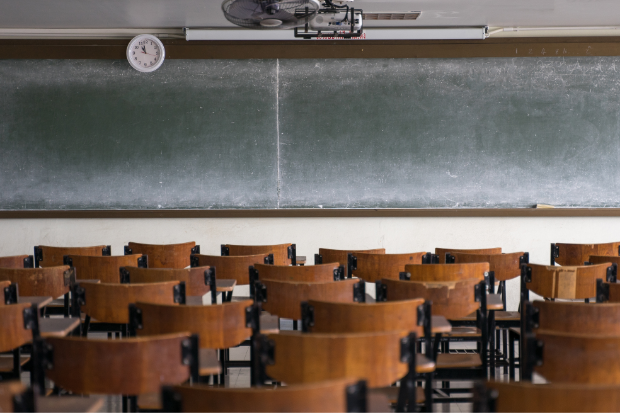
INQUIRER.net stock photo
MANILA, Philippines — President Rodrigo Duterte would rather wait for more people to be vaccinated against COVID-19 before allowing the resumption of in-person classes, presidential spokesperson Harry Roque said on Thursday.
“So it will really depend on how many people the President wants to see vaccinated, but as of now, we have vaccinated a lot. Let’s just say that maybe the President is checking if there is enough confidence to begin the pilot [classes],” Roque told reporters.
Education Secretary Leonor Briones earlier recommended that in-person classes be allowed in areas with a low number of COVID-19 cases, but Duterte said he wanted the majority of the population to be inoculated first.
However, he did not specify what percentage of the population should be vaccinated before agreeing to Briones’ proposal.
According to Roque, Briones may again make her recommendation at the next Cabinet meeting.
Roque had been asked to comment on the position of Socioeconomic Planning Secretary Karl Chua that in-person classes should reopen in areas with a low number of coronavirus cases.
Long-term effects
Not allowing students to return to the classroom would have long-term effects on learning and productivity, Chua said before his confirmation by the Commission on Appointments on Wednesday.
He had been pushing since last year for the resumption of in-person classes, adding that it was not only students who were struggling with distance learning because of the slow internet connection in the country.
According to him, parents were also affected, particularly mothers who would otherwise be working, instead of helping their children with their studies, to augment the family income.
The World Bank has also pushed for in-person classes in areas with few infections, citing the lack of access to computers and slow internet faced by those studying at home.
In-person classes were supposed to reopen in low-risk areas early this year, but these were canceled after the emergence of new and more contagious COVID-19 variants.